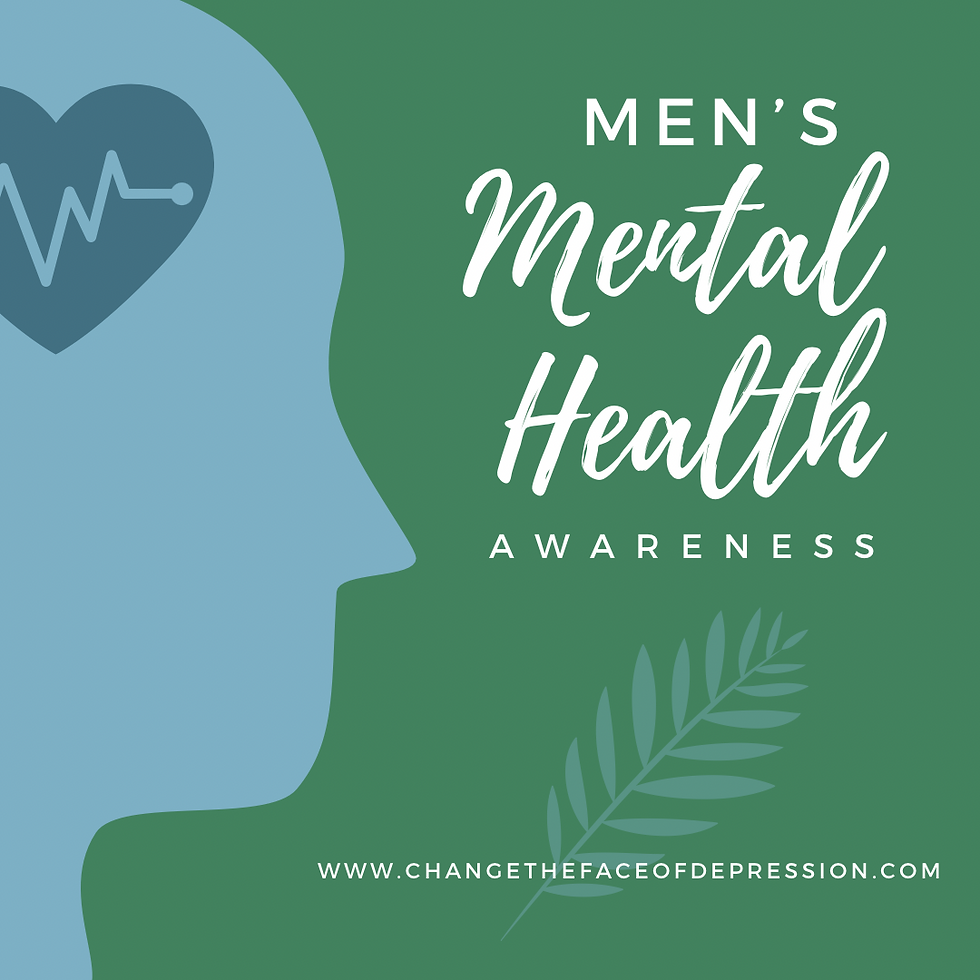Juneteenth and Men’s Mental Health: Celebrating Freedom and Fostering Healing
- Casie Ellison

- Jun 19, 2024
- 3 min read
Juneteenth and Men’s Mental Health: Celebrating Freedom and Fostering Healing
Juneteenth, celebrated on June 19th, marks a pivotal moment in American history—the day when the last enslaved African Americans in Texas were informed of their freedom in 1865. This day symbolizes the end of slavery in the United States and serves as a powerful reminder of resilience, liberation, and the ongoing fight for equality. As we honor this significant day, it’s also essential to address an often-overlooked aspect of freedom: mental health, particularly for Black men.
### The Intersection of History and Mental Health
The legacy of slavery, systemic racism, and social injustices has had a profound impact on the mental health of Black men. Historical trauma, coupled with contemporary struggles, creates unique mental health challenges that must be acknowledged and addressed. Juneteenth is not just a celebration of freedom from physical bondage but also a call to break the chains of psychological oppression.
### Breaking the Silence: The Importance of Mental Health Conversations
In many communities, there’s a stigma attached to discussing mental health, especially for men who are often expected to embody strength and stoicism. This cultural norm can lead to silence and suffering. However, acknowledging mental health struggles is a critical step toward healing.
Why is it crucial for Black men to engage in these conversations?
- Historical Trauma: Understanding the impact of generational trauma can help in addressing current mental health issues.
- Systemic Racism: Recognizing the daily stressors and microaggressions that Black men face can provide context for their mental health struggles.
- Role Models: When Black men speak openly about their mental health, they pave the way for others to do the same, creating a ripple effect of healing and support.
### Healing Through Community and Connection
Community plays a vital role in mental health. For Black men, finding a supportive network can be a source of strength and resilience. Juneteenth is a celebration of community, heritage, and unity, providing an opportunity to foster these connections.
Ways to build and sustain supportive communities:
- Support Groups: Join or create support groups where men can share their experiences and support one another.
- Mentorship: Engage in mentorship programs that provide guidance, support, and positive role models.
- Community Events: Participate in Juneteenth events and other cultural gatherings that celebrate heritage and promote unity.
### Embracing Self-Care and Wellness
Self-care is not a luxury; it’s a necessity. For Black men, engaging in self-care practices can significantly improve mental health and overall well-being. This Juneteenth, let’s prioritize self-care as a form of liberation.
Practical self-care tips:
- Physical Activity: Exercise regularly to reduce stress and improve mood.
- Mindfulness Practices: Engage in mindfulness, meditation, or prayer to center yourself.
- Creative Outlets: Express yourself through art, music, writing, or other creative endeavors.
- Professional Help: Seek therapy or counseling to work through mental health challenges with a professional.
As we celebrate Juneteenth, let’s also commit to fostering the mental health and well-being of Black men. By breaking the silence, building supportive communities, and prioritizing self-care, we can honor the spirit of Juneteenth and work toward true freedom—freedom from mental health struggles and the stigmas that bind us.
Celebrating Freedom and Fostering Healing
Together, we can create a future where mental health is a cornerstone of our collective liberation and resilience.
Happy Juneteenth! Let’s celebrate freedom, embrace healing, and uplift each other in the journey toward mental wellness.











Comments